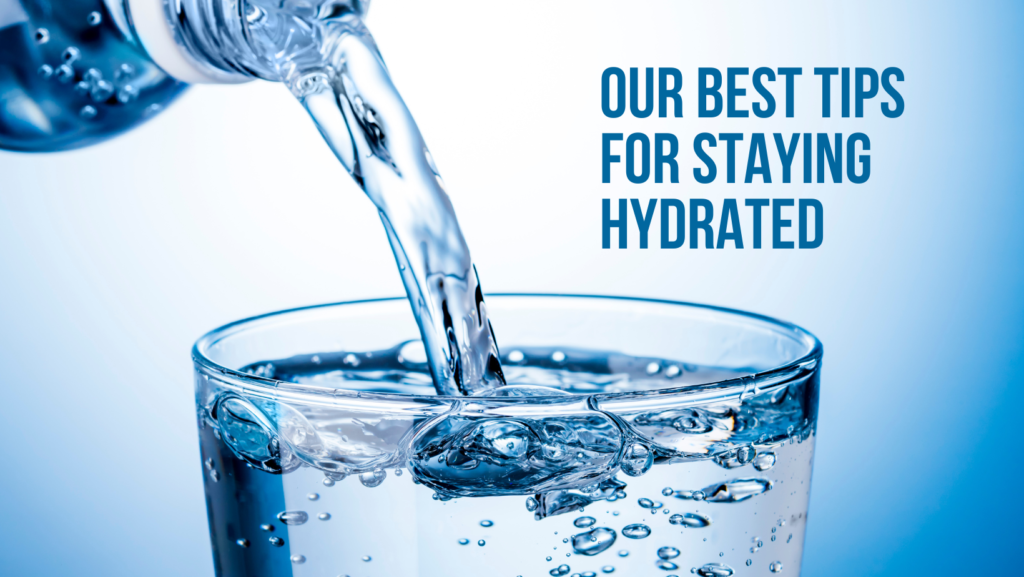Does Hydration Support Healthy Aging?

Discover how staying well-hydrated can support graceful aging.
You probably already know that our bodies are mostly water. Water supports nearly every bodily function, and without it, our bodies can’t function at their best. More importantly, as we age, the role of hydration becomes even more significant,
impacting different aspects of our health and wellness.
In this post, we’ll explore how being well hydrated can positively impact your health as you age gracefully.
Hydration and Chronic Disease Prevention
Recent research highlights the importance of hydration in slowing down the aging process and reducing the risk of chronic diseases. A 2023 study by the National Institutes of Health analyzed data from over 11,000 adults over 30 years. The study found that higher serum sodium levels, a marker of dehydration, were associated with an increased likelihood of chronic conditions such as heart disease and signs of advanced aging. This underscores the significant role of staying hydrated for maintaining health as we age.
Understanding Dehydration Risks
Dehydration occurs when the body loses more fluids than it takes in. It can lead to a range of complications and have a detrimental impact on your health. Symptoms of dehydration include:
- Fatigue and weakness
- Dizziness or lightheadedness
- Dry mouth
- Confusion or difficulty concentrating [1]
To prevent complications like these, monitor your fluid intake and check your urine color. Your urine color is a good indicator of hydration. Pale yellow or clear urine typically means good hydration, while dark yellow suggests you need more water.
Hydration Needs for Adults Aging Gracefully
The general guideline is to drink about eight glasses of water per day, but in reality, individual hydration needs can vary.
Factors like physical activity, climate, and health conditions all influence how much water you should drink. Someone who is very active or lives in a hot climate, for example, will need more fluids. Those with health conditions or taking certain medications, on the other hand, may need to adjust their intake differently.
Hydration needs can also change with age. As we get older, muscle mass and kidney function often decline, making it harder to conserve water. The sense of thirst may also diminish, meaning by the time you feel thirsty, your body might already be low on fluids. [2]
5 Tips for Staying Hydrated
Staying hydrated doesn’t have to be a chore. Here are some tips to help you meet your daily fluid needs:
- Drink water with meals: Opt for water \with your meals instead of surgery drinks to
increase your intake. - Infuse your water: If the taste of plain water doesn’t appeal to you, try adding slices of fruit or herbs to make it more flavorful.
- Eat hydrating foods: Incorporate fruits and vegetables with high water content into your diet. Cucumbers, watermelon, and oranges are tasty options.
- Carry a water bottle: Keep a water bottle handy. It makes it easier to drink water throughout the day while on the go.
- Set reminders: Use a phone app or a smartwatch to set reminders to drink water.
Conclusion
Hydration is about more than just drinking water; it’s about fueling your body with what it needs to thrive. When you prioritize hydration, you supercharge your health and boost your ability to age gracefully.
At Restoring Bodies Fitness, we’re committed to your complete wellness, including hydration. If you need personalized support, reach out to us to schedule a meeting with our owner and in-house dietician, Tammie Brown.
We’re here to support you every step of the way!
Other Sources Consulted:
- American Heart Association. Staying Hydrated, Staying Healthy
- MedlinePlus Magazine. H20 for Healthy Aging
- Healthline. Hydration May Be a Key to Healthy Aging
